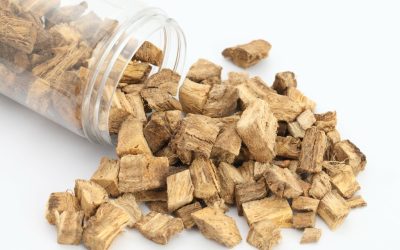Many people who go through alcohol withdrawal no longer have enough thiamine in their body. If your doctor feels you’re at risk, it will be important for you to have a thiamine supplement by IV for several days. Only about 1%-1.5% of people with alcohol withdrawal will have DTs.
Replacing unhealthy habits with a healthier lifestyle can ease withdrawal symptoms and help keep cravings at bay. Here’s some information to help you get ready for your appointment, and what to expect from your health care provider or mental health provider. Couples and family counseling incorporates spouses and other family members in the treatment process and can play an important role in repairing and improving family relationships.

How to Detox From Alcohol at Home
Less frequently, people can develop severe symptoms of alcohol withdrawal called delirium tremens or DTs. At Advanced Addiction Center, we provide 24/7 medical supervision for patients experiencing severe withdrawal cure for alcohol withdrawal symptoms symptoms. Our medical team uses specialized protocols to prevent and manage these dangerous complications through medication-assisted treatment and continuous monitoring.
Moderate symptom (12 to 48 hours after the last drink)
In studies with alcohol-addicted mice, ashwagandha seemed to relieve anxiety. More studies would be needed to see if it works the same way in humans. Each of these fee-based tools has a research base that shows its potential to help people cut down or quit drinking. The three-step road map outlined in the NIAAA Alcohol Treatment Navigator offers expert guidance to focus and support your efforts. Learn how to find higher quality, science-backed alcohol treatment to raise your changes for success.
The severity depends on individual factors like genetics, health status and duration of drinking. Stress and anxiety can increase the severity of alcohol withdrawal symptoms. It helps to keep busy with activities you find enjoyable and that promote health and well-being. Herbal supplements like Ashwagandha, kudzu, milk thistle, and St. John’s wort may reduce alcohol withdrawal symptoms and prevent cravings. Your health care provider or mental health provider will ask additional questions based on your responses, symptoms and needs.
- Always get medical clearance first, especially if you have underlying health conditions or severe withdrawal symptoms.
- Doctors will monitor your symptoms and risk for alcohol withdrawal complications.
- Alcohol acts as a depressant on the central nervous system, and once removed, the body must recalibrate its natural processes, often leading to distressing symptoms.
- Other medications might include anticonvulsants, anti-nausea drugs and sleep aids, depending on individual symptoms and medical history.
- Contact your primary care provider, health insurance plan, local health department, or employee assistance program for information about specialty treatment.
- When you quit alcohol after using it consistently, your body spends about a week to a week and a half adjusting to its absence.
How Do I Find the Right Walk-In Alcohol Rehab in Colorado?
Typically, those who experience alcohol withdrawal have an alcohol use disorder (AUD). This is because their body has already developed a tolerance and dependency on alcohol. This slow reduction can help minimize the intensity of withdrawal symptoms, which can include nausea, vomiting, headaches, anxiety and insomnia. Halfway house If you’re struggling with alcohol use, consider reaching out to a treatment center like Orlando Recovery Center. Professional staff can offer medically supervised detox, inpatient and outpatient programs, and ongoing aftercare to support long-term recovery. However, even mild symptoms can intensify if alcohol use continues or if medical supervision is not sought.
Alcohol use disorder has also been linked to a higher risk of several cancers, including colon, breast, oral, liver, and throat cancers. Some studies report that mindfulness led to better outcomes than 12-step programs only. St. John’s wort works to balance serotonin and dopamine, brain chemicals responsible for a feeling of well-being. Some research shows that milk thistle may help those looking to treat alcohol-related liver disease. It’s important to note that more studies are needed to confirm that the herb enhances liver health. Milk thistle (Silybum marianum) is an herb rich in the antioxidant silymarin.
The Long-Term Effects of Addiction on Relationships

It is a process that requires self-awareness, support from others and, in some cases, professional medical supervision. Below are some strategies that may ease withdrawal symptoms if you are attempting a home detox. However, it is vital to remember that severe alcohol dependence or heavy long-term alcohol use may require a higher level of care. Medications are often used to manage the symptoms of alcohol withdrawal safely. Benzodiazepines, such as diazepam (Valium) or lorazepam (Ativan), are commonly prescribed to reduce withdrawal symptoms and prevent complications like seizures. Other medications might include anticonvulsants, anti-nausea drugs and sleep aids, depending on individual symptoms and medical history.
Addiction Treatment
You may not feel like being physically active or going outside, but a good walk can completely recharge your mental and emotional state. Verify your insurance today – treatment could be more affordable than you think. The average cost is $13, 475, according to the National Center for Drug Abuse Statistics. For instance, some 30-day inpatient programs cost $5,000, while others may cost $20,000. Similarly, 90-day rehab programs can range from $12,000 to $60,000.
Peer recovery coaching has emerged as an effective complement to traditional treatment approaches for substance use disorders. You’ll need to focus on maintaining a balanced diet rich in B vitamins and zinc, staying well-hydrated, and managing electrolyte levels. Though some herbal remedies like St. John’s Wort and kudzu show promise in preliminary studies, there’s limited scientific evidence supporting their effectiveness for withdrawal symptoms. Feelings of shame and embarrassment often prevent people from seeking professional help. Instead, concentrate on proven distraction techniques such as exercise, hobbies, and structured activities. Remember to manage symptoms through gentle stretching, adequate rest, and avoiding caffeine.
Given the risks involved in self-detoxing from alcohol, it is essential to consider your individual health situation and the level of support you have access to at home. When in doubt, seeking professional guidance can improve your safety and comfort during detox. Relapse can happen, especially if underlying triggers or mental health issues are not addressed.